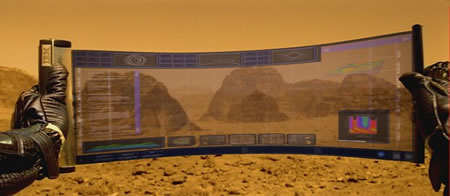There is no single definition for the singularity.
MIT Media Lab Professor and inventor Ray Kurzweil defines it as,
“…the postulated point or short period in our future when our self-guided evolutionary development accelerates enormously (powered by nanotechnology, neuroscience, AI, and perhaps uploading [minds]) so that nothing beyond that time can reliably be conceived. The Singularity is a common matter of discussion in transhumanist circles. There is no concise definition, but usually the Singularity is meant as a future time when societal, scientific and economic change is so fast we cannot even imagine what will happen from our present perspective, and when humanity will become posthumanity. Another definition is the singular time when technological development will be at its fastest.”
And Singularity Watch said,
“Some 20 to 140 years from now—depending on which evolutionary or systems theorist, computer scientist, technology studies scholar, or futurist you happen to agree with—the rate of self-catalyzing, self-organizing, ever more autonomous (human-independent) technological change in our local environment will undergo a “singularity,” becoming effectively instantaneous from the perspective of current biological humanity. It has been postulated that events after this point must also be “future-incomprehensible” to existing humanity, though we disagree.”
20 to 140 years is a wide margin if they’re right at all, so I wont be quitting my day job, but man what a prediction. Hundreds of bright, devoted, and highly educated professionals believing that we may live to witness an event unlike any in human history. It’s beyond incredible. Not that is this the first time hundreds of bright, devoted, educated people expected something of cosmic importance to happen in their lifetimes, some Christians expect Christ any day now. My family is Jewish, they’re still waiting for the Messiah to arrive for the first time.
Science is not and cannot be a religion based solely on the premise that religion requires faith in the unprovable, but we all need something to look to when life is hard, at least I do. Sometimes Atheism can be a very lonely place to be, and I miss the comfort of turning to God. The idea that we as a species of thinking creatures inhabiting this marvelous planet in this awe-inspiring universe could manifest a destiny no less fantastical than anything promised by the religions is something I feel proud and honored to hold on to. Now all we need to do is give peace a chance, stop thinking so short term about our resources, prevent corporations and governments from abusing the privilege of having us as consumers and citizens, and diffuse a growing bitterness over the stark division of the first and third worlds, as well as clearing up that little land dispute in the near East. After all that we should be clear for the future, flying cars and all.
Idealistic doesn’t begin to cover it, but it’s something to shoot for. I have a friend who hates his life, hates his job, and hates his girlfriend. He thinks we were put here to be miserable. I think we’re here to change, to grow. We just grow a lot faster these days.


